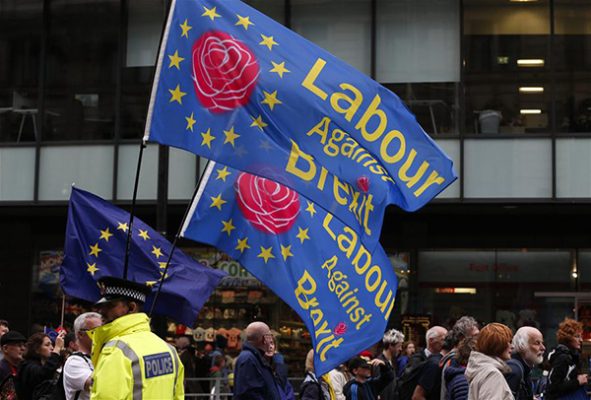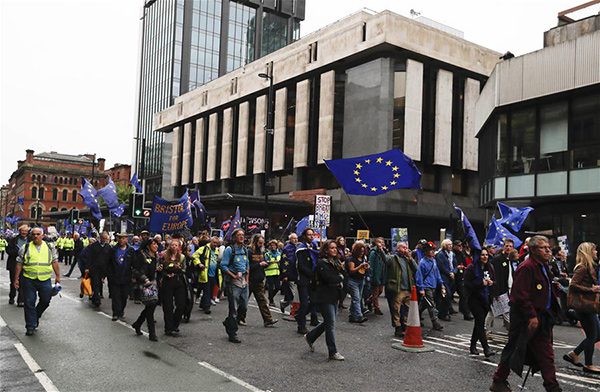
LONDON – British Prime Minister Theresa May outlined new proposals Sunday to win support from younger voters after many backed the rival Labour Party.
May’s bid to woo thousands of disaffected students came on the first day of the Conservative party’s annual conference in Manchester.
Tens of thousands of protestors converged on the northern England city, with a number of rallies organized by anti-Brexit groups and activists demanding an end to the Conservative austerity measures.
Local media in Manchester reported that 50,000 people were expected at the various rallies during the day.
Around 1,000 police officers were on duty forming a security shield around Manchester Central, the one-time railway terminal where the conference is taking place over the next four days.
A heavy presence of armed police were on duty outside the nearby baroque-style four-star Midland Hotel which has become May’s conference headquarters.
This year’s terror bombing at the nearby Manchester Arena, in which 22 people were killed by suicide bomber Salman Abedi, has heightened security precautions around the conference. The security operation is costing police almost 2.7 million US dollars.
In a major interview in the Sunday Telegraph newspaper, May announced the freezing of university tuition fees at 9,250 pounds (12,400 US dollars) a year. She also plans to raise the threshold so students won’t start paying back their debt until they earn over 33,500 US dollars a year.

With Labour saying they would scrap university tuition fees altogether, political commentators were asking whether May’s carrot would win back younger voters.
May also plans to spend 10 billion British pounds (13.4 billion US dollars) helping thousands of first-time house buyers get onto the property-owning ladder.
In the interview May said she wanted to lead her party into the next general election, due in 2022, saying: “I’m not a quitter. I’m in it for the long-term and I believe there is a long-term job to do.”
May’s first full day in Manchester Sunday, her 61st birthday, was met with the kind of greetings she would not have welcomed.
The Sunday Observer newspaper’s main story was headlined “May in battle for survival as Tories sharpen knives”.
The Sunday Times said foreign secretary Boris Johnson planned one last bid for the top job at 10 Downing Street. Their headline read “Johnson believes she will be gone in a year”.
The Sunday Express in a flag-waving story in support of May, welcomed her pledges to overhaul student fees with the headline “That’s more like it Mrs May”.


